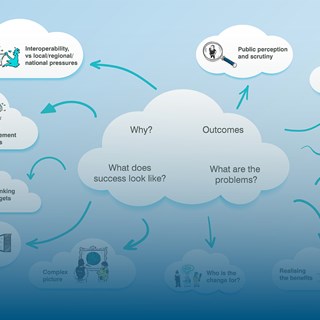In complex defence programmes, adopting an agile approach often benefits. Agile is more than a buzzword: it is a philosophy and development framework that needs to be integrated into organisational environments that typically do not – or indeed cannot - work in this manner. If you get this integration wrong or don’t give it sufficient focus, tensions will derail programme delivery.
One of the most prominent pressures on defence programme delivery is that of timescales and iterations: time vs tempo. How can we adapt our programme models, behaviours and approaches to respond to these tensions? How can you iteratively develop an upgraded capability and deliver it to the front line by a required date – to avoid a capability gap – whilst adhering to long-timescale organisational processes and continually demonstrating value-for-money and programme viability?
In this article, Andrew Gray, Senior Principal Consultant, and Leigh Storer, Consultant, BMT, describe how programmes and governments can apply agile frameworks and development environments in the right way to help prioritise work, identify risks and manage options before programme delivery is threatened.






